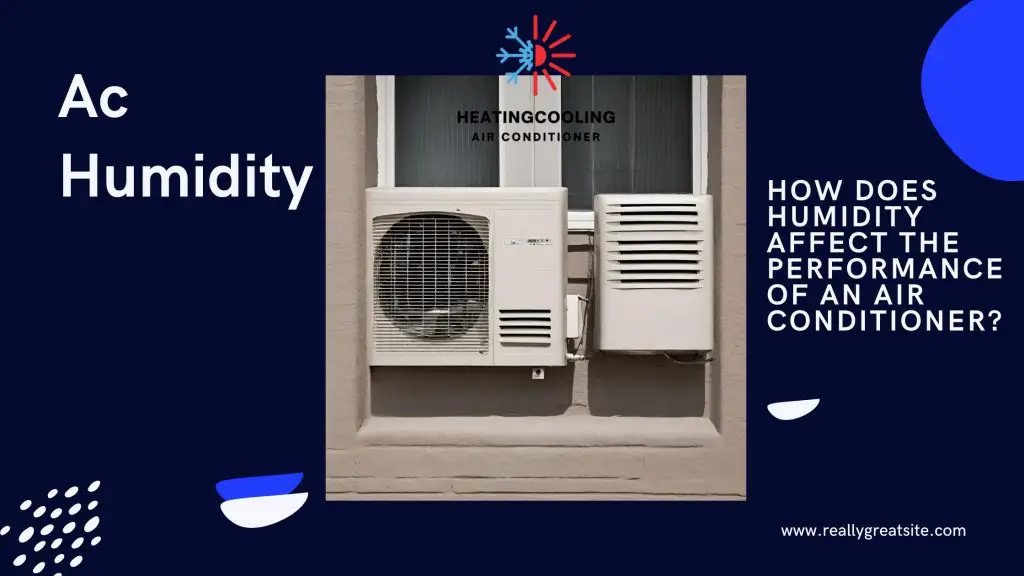Humidity is a major factor that affects the performance of an air conditioner. It refers to the amount of moisture present in the air, and it can significantly impact the cooling capacity, energy efficiency, comfort level, and overall functionality of an air conditioning system. Understanding the relationship between humidity and air conditioning is crucial for homeowners, HVAC technicians, and anyone interested in optimizing the performance of their cooling systems. In this article, we will delve into the various ways in which humidity affects the performance of an air conditioner.
Does humidity affect AC performance?
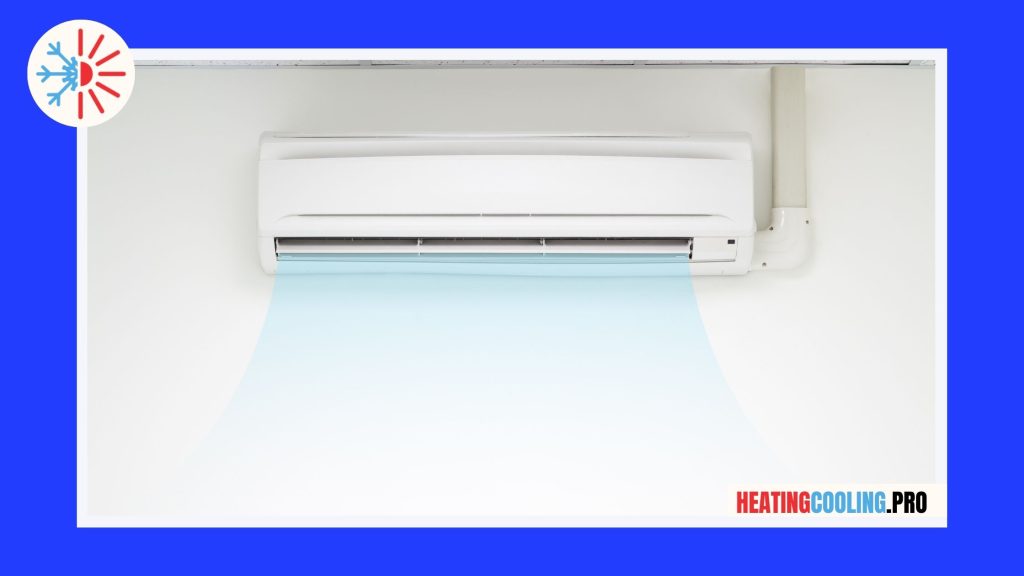
Humidity plays a significant role in the performance of air conditioning (AC) systems. When the humidity levels are high, the air contains more moisture, making it feel warmer than it actually is. This perception of higher temperatures can lead people to lower the thermostat setting on the AC, causing the system to run longer and work harder to achieve the desired temperature. Consequently, this increased workload can result in higher energy consumption and higher utility bills.
Moreover, high humidity can reduce the efficiency of the AC unit in removing heat from the indoor air. AC systems not only cool the air but also dehumidify it by condensing moisture from the air. In humid conditions, the AC has to work harder to remove this excess moisture, diverting energy and reducing overall efficiency. As a result, the AC may struggle to maintain the desired indoor temperature, making the occupants feel uncomfortable and causing the system to operate for longer durations.
Additionally, high humidity can also affect the air distribution within a space. The moisture-laden air is denser than dry air, making it harder for the AC system to distribute cooled air evenly throughout the area. This can create pockets of warmer or more humid air, making some parts of the space feel less comfortable compared to others. On the flip side, lower humidity levels can enhance the performance of an AC system. Dry air is easier to cool and dehumidify, allowing the AC unit to operate more efficiently and effectively. The reduced moisture content means the AC can reach and maintain the desired temperature with less strain and energy consumption.
Humidity does indeed impact AC performance. High humidity makes the AC work harder, potentially leading to increased energy usage and decreased efficiency, while lower humidity levels contribute to better AC performance and energy efficiency. It’s essential to consider humidity levels when using an AC system to optimize comfort and minimize energy costs.
How Do You Clean Air Conditioner Filters?
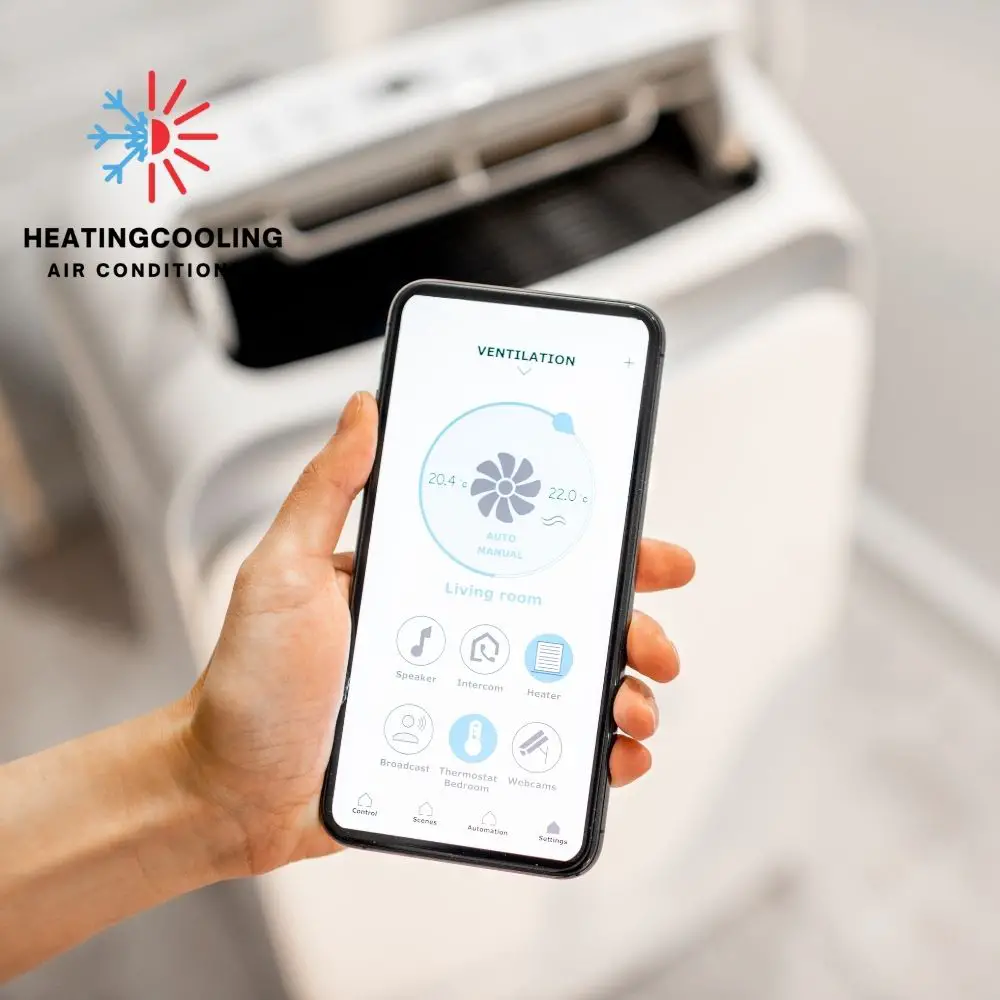
Cleaning air conditioner filters is an essential maintenance task that helps keep your AC system running efficiently and ensures better indoor air quality. The process typically involves removing and cleaning the filters to remove accumulated dust, dirt, and debris. It’s a straightforward task that can be done without professional assistance. To clean your air conditioner filters, start by turning off the AC unit and locating the filter access panel. This panel is usually on the front or side of the indoor unit. Open the panel to access the filters. Depending on your AC model, filters may slide out or require unscrewing.
Once you have removed the filters, assess their condition. If the filters are heavily soiled or damaged, consider replacing them with new ones. For reusable filters, gently vacuum or shake off the loose debris. Rinse the filters under cold water to remove any remaining dirt. For a deeper clean, you can soak the filters in a mild mixture of water and gentle dish soap. Allow them to soak for a few minutes, then gently scrub them with a soft brush or sponge. Rinse thoroughly and let the filters air dry completely before reinserting them into the unit.
Remember to follow the manufacturer’s instructions for cleaning and maintenance, as different AC models may have specific recommendations. Regularly cleaning your air conditioner filters, usually once a month or as needed, will help maintain the efficiency of your AC system and ensure clean, fresh air circulation in your home.
How Do You Maintain An Air Filter?
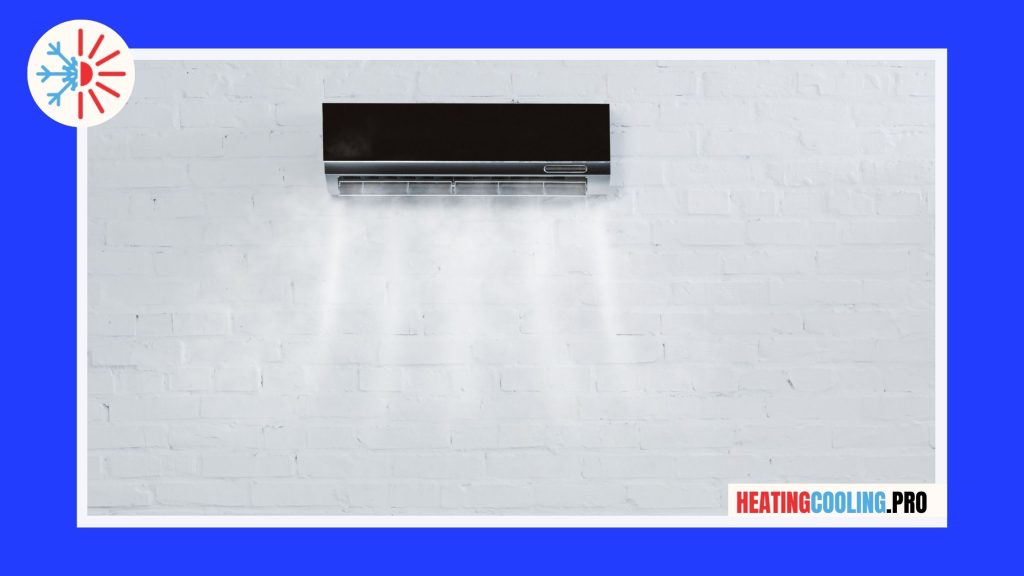
Maintaining an air filter is crucial for keeping your indoor air clean and ensuring the optimal performance of your HVAC system. The process involves regular inspections and cleanings, and it’s a relatively simple task that you can handle without professional assistance. Start by checking your air filter at least once a month. Locate the air filter, which is typically positioned in the return air duct or near the air handler. Assess the condition of the filter to determine if it needs cleaning or replacement. If the filter appears dirty or clogged, it’s time for maintenance.
For disposable air filters, replace them according to the manufacturer’s recommendations or when you notice a significant accumulation of dirt and debris. Simply remove the old filter and insert a new one of the same size and type. If you have a reusable air filter, gently vacuum or shake off the loose debris. You can also rinse the filter under cold water to remove trapped dust and dirt. Use a mild detergent if needed, and be sure to rinse thoroughly and allow the filter to air dry completely before reinstalling it.
Additionally, pay attention to any unusual odors, reduced airflow, or changes in the performance of your HVAC system, as these may indicate a need for more frequent filter maintenance or a replacement. By regularly inspecting and maintaining your air filter, you ensure that your HVAC system functions efficiently, energy costs stay manageable, and the air you breathe indoors remains clean and healthy.
Cooling Capacity
Humidity plays a critical role in determining the cooling capacity of an air conditioning system. When the relative humidity is high, the air contains more moisture, making it harder for the air conditioner to remove heat effectively. This is because the cooling process involves both temperature and moisture removal. As the air conditioner cools the air, it also condenses the moisture, which increases the system’s workload and reduces its cooling capacity. As a result, the cooling output of an air conditioner decreases as humidity levels rise, making it more challenging to achieve the desired indoor temperature.
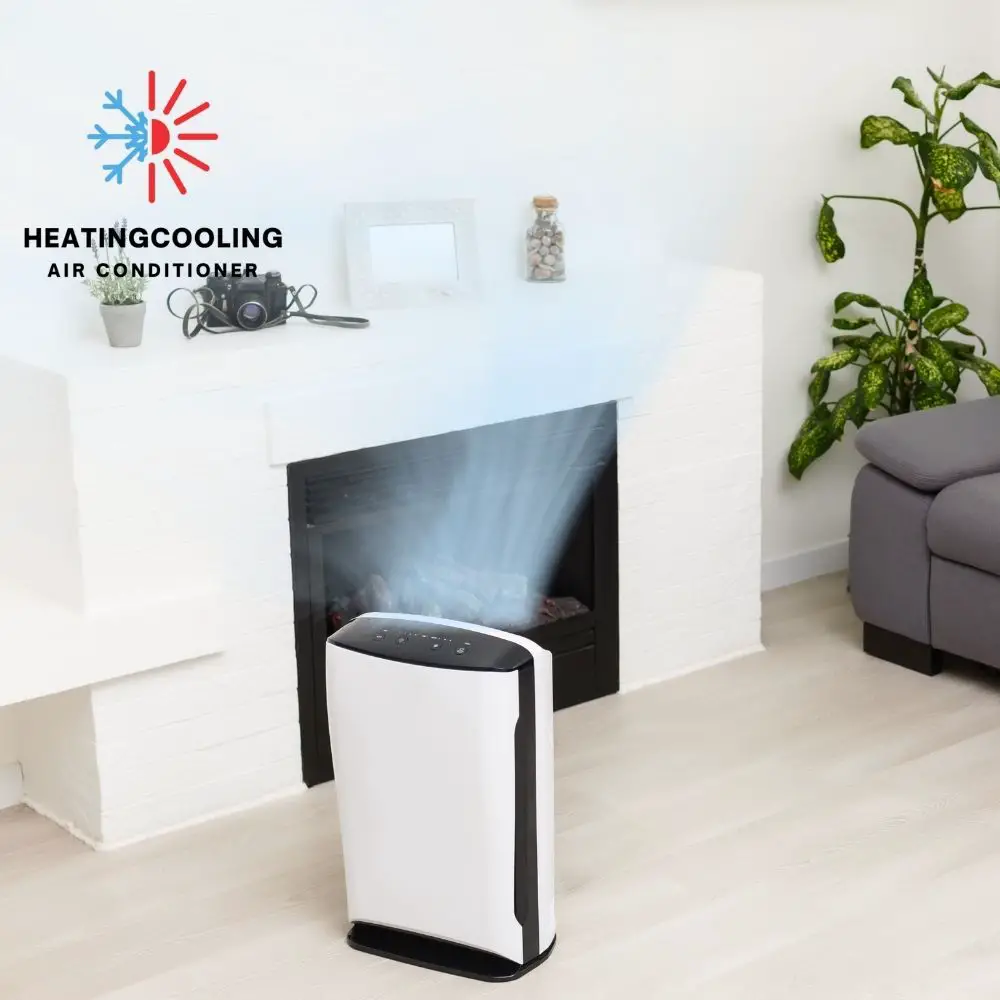
Humidity can have a significant impact on the energy efficiency of an air conditioner. When the humidity levels are high, the air conditioner needs to work harder to remove moisture from the air, which consumes more energy. This increased energy consumption not only leads to higher electricity bills but also puts unnecessary strain on the system, reducing its overall efficiency. On the other hand, when the humidity levels are within an optimal range, the air conditioner can efficiently cool the air without excessive energy consumption, leading to lower energy costs and improved energy efficiency.
How Do I Clean And Maintain My Air Conditioner?
Cleaning and maintaining your air conditioner is essential to ensure its optimal performance and longevity. Regular upkeep can be done without the need for professional assistance, saving you both time and money. Start by regularly inspecting and cleaning the air filters. Depending on your AC model, these can be reusable or disposable. For reusable filters, vacuum or rinse off accumulated dirt and debris, ensuring they’re completely dry before reinserting them. Replace disposable filters according to the manufacturer’s recommendations or when they appear dirty.
Next, check the evaporator and condenser coils. Over time, these coils can accumulate dirt and dust, affecting the efficiency of the AC. Use a soft brush or vacuum cleaner to gently clean the coils. Be cautious not to damage the fragile fins. Clean the condensate drain line to prevent clogs and mold growth. You can use a mixture of water and vinegar to flush the drain line, ensuring it’s clear and functioning properly. Trim any vegetation or obstructions near the outdoor unit to maintain proper airflow and prevent overheating.
Regularly inspect the thermostat to ensure it’s functioning accurately. If you have a programmable thermostat, set it to optimize energy usage when you’re away or asleep, saving on energy costs. Lastly, schedule professional maintenance at least once a year. An HVAC technician can perform a thorough checkup, clean hard-to-reach components, and identify any potential issues before they escalate, keeping your AC in top shape. Incorporating these simple maintenance practices into your routine will enhance the efficiency and lifespan of your air conditioner, ensuring a comfortable indoor environment during hot weather while keeping energy bills in check.
Comfort Level
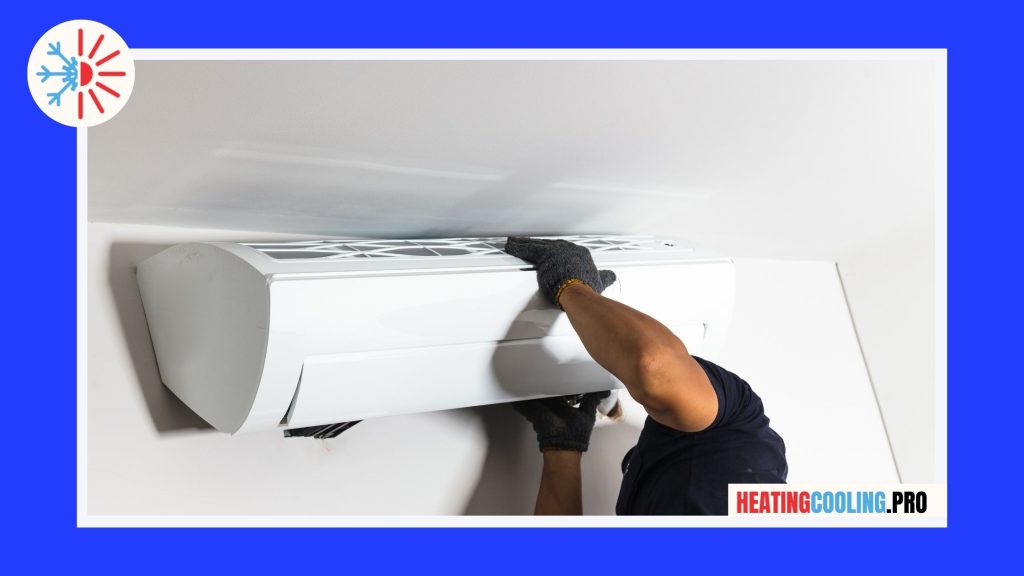
Humidity greatly affects the comfort level inside a space. High humidity levels make the air feel sticky and damp, creating an uncomfortable environment even if the temperature is relatively cool. Air conditioners help to mitigate this discomfort by removing excess moisture from the air. However, if the humidity is too high, the air conditioner may struggle to maintain a comfortable humidity level, resulting in a clammy and unpleasant indoor environment. Therefore, it is essential to strike a balance between humidity and cooling to achieve optimal comfort levels.
Humidity levels also impact indoor air quality. Excessive humidity can create a breeding ground for mold, mildew, bacteria, and dust mites, leading to poor air quality and potential health issues. Air conditioners help to control humidity levels by removing excess moisture, thus inhibiting the growth of these harmful microorganisms. However, if the air conditioning system is not properly maintained or if the humidity levels are consistently high, it can become a breeding ground for these contaminants, compromising the overall air quality.
Humidity can have long-term effects on the lifespan of an air conditioning system. High humidity levels increase the workload on the system, causing it to operate for longer durations and work harder to achieve the desired cooling. This continuous strain can lead to wear and tear on the components, resulting in reduced efficiency and potentially damaging the system over time. Additionally, excessive moisture in the air can cause corrosion and rusting of the system’s internal parts, further shortening its lifespan. Therefore, maintaining optimal humidity levels is crucial for preserving the longevity of an air conditioner.
Conclusion
Humidity significantly impacts the performance of an air conditioner. It affects the cooling capacity, energy efficiency, comfort levels, air quality, and system lifespan. High humidity levels can reduce the cooling output, increase energy consumption, create discomfort, degrade air quality, and potentially damage the system. Therefore, it is essential to monitor and control humidity levels to optimize the performance and efficiency of air conditioning systems. Regular maintenance, proper insulation, adequate ventilation, and the use of dehumidifiers can all contribute to achieving the ideal balance between humidity and cooling, ensuring a comfortable and efficient cooling experience.
